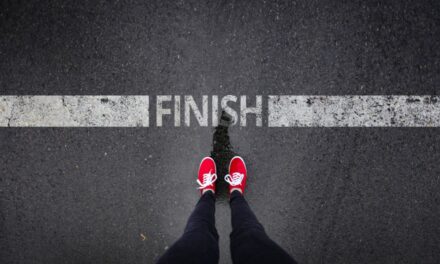Do you usually feel like there are not enough hours in the day to accomplish everything you need to do? Sometimes it seems like the laundry or the dishes will just have to wait until later.
But as hard as it is, we must do things when we need to. Otherwise, they don’t get done at all. Or we find ourselves having to do them when we truly don’t have the time for them. Then, inevitably, something else has to be put off.
This scenario also applies to work. When a project has a deadline, it’s important to devote all of your undivided attention to it, or it won’t get completed. Time management is a critical aspect of every job – from planning to executing.
Your schedule needs to be structured to support efficiency and productivity to reach your goals.
If you’ve felt like you need to change your daily schedule and get more done in a shorter amount of time, these tips are for you:
1. Check your existing workflows and processes.
Ask yourself: Are they efficient? Do certain things take too much time or space to complete? Are there things you can do to eliminate steps or streamline your workflow?
Assessing your current workflows is essential in improving and facilitating your productivity. For example, do you need to complete specific tasks in a particular order or time?
If you don’t need to do certain activities in the order you listed them, reorder them to streamline your work.
2. Rank your processes.
Once you know your current workflows, you can rank them in terms of both the amount of time they take to complete and the extent to which they streamline your typical workflow.
You’ll want to use a scale of 1-5, depending on how time-consuming a process is and how much it changes your routine. If it takes less than five minutes, you can probably nix it from your workflow.
3. Turn off your notifications.
Notifications in apps can be great when you want to receive a notice for something important, but when you’re working with flowing tasks, they’re distractions.
Turn off your notifications and focus only on the task at hand so that you don’t end up losing focus. The truth is, most notifications can wait. You can put news alerts and messages on hold until later.
4. Tackle the hard stuff first.
If you’re trying to jam in as many tasks as you can, chances are you’re not getting anything done. It might even be the opposite; you’re spending more of your limited time on busywork that you don’t need to do.
To help yourself become more productive, focus on one task at a time and work on that until you complete it. If you find yourself multitasking, try focusing instead for a single 30-minute period.
Trying to work on more than one task at a time can cause procrastination, which is a whole new level of anxiety. Spend time organizing your tasks in order of priority so that the most important projects have the first slot in your schedule.
For instance, if you tend to procrastinate on tasks that involve creative work, such as writing, brainstorming, and generating ideas, you might find that setting aside 15 minutes a day to write helps you make progress on what you’re already doing.
5. Do your work near a natural source of light.
A good source of light not only helps you see better, but it also helps you work better. This tip is handy if you work from home.
Those who work from home can become dependent on artificial light, leading to eye strain, fatigue, and depression. Work in a well-lit area and make sure to take regular breaks away from your desk.
Streamlining your schedule and increasing your efficiency will help you focus on what’s important throughout the day. Try to limit the number of distractions you have around you.
When making important decisions, ensure that you get enough sleep, so your brain can function at its best.
And remember that you might not need to make a complete overhaul of your schedule. Many times, you can make small changes to greatly improve your overall productivity.










